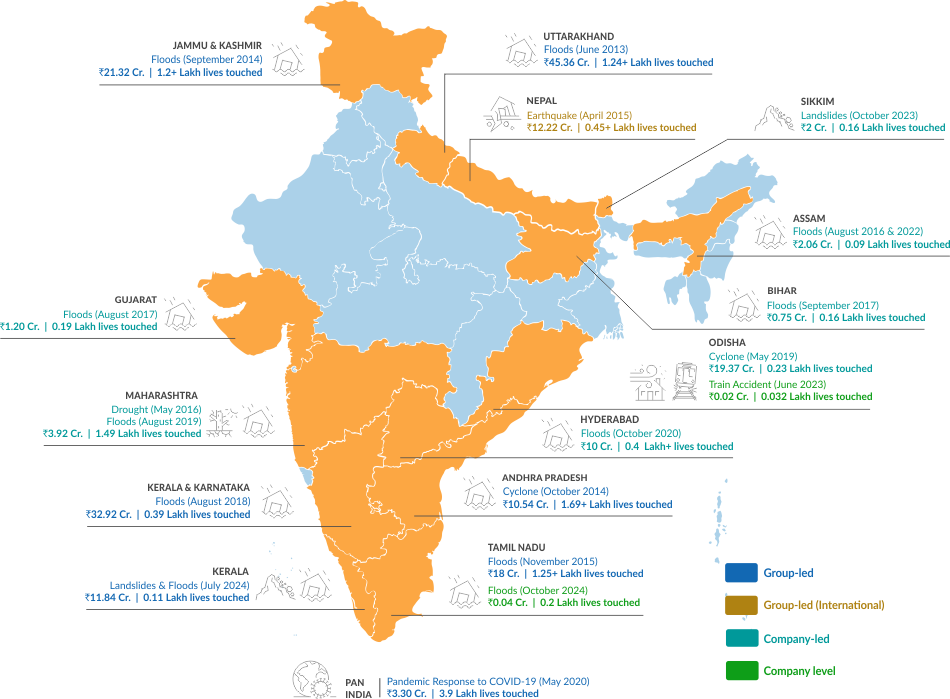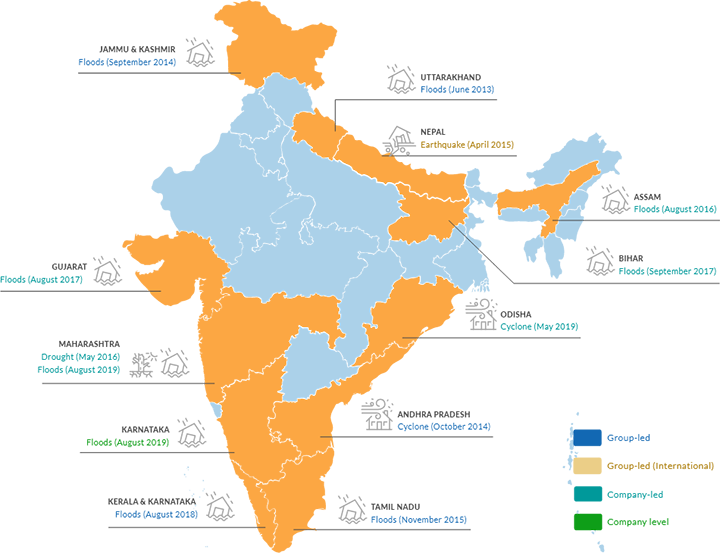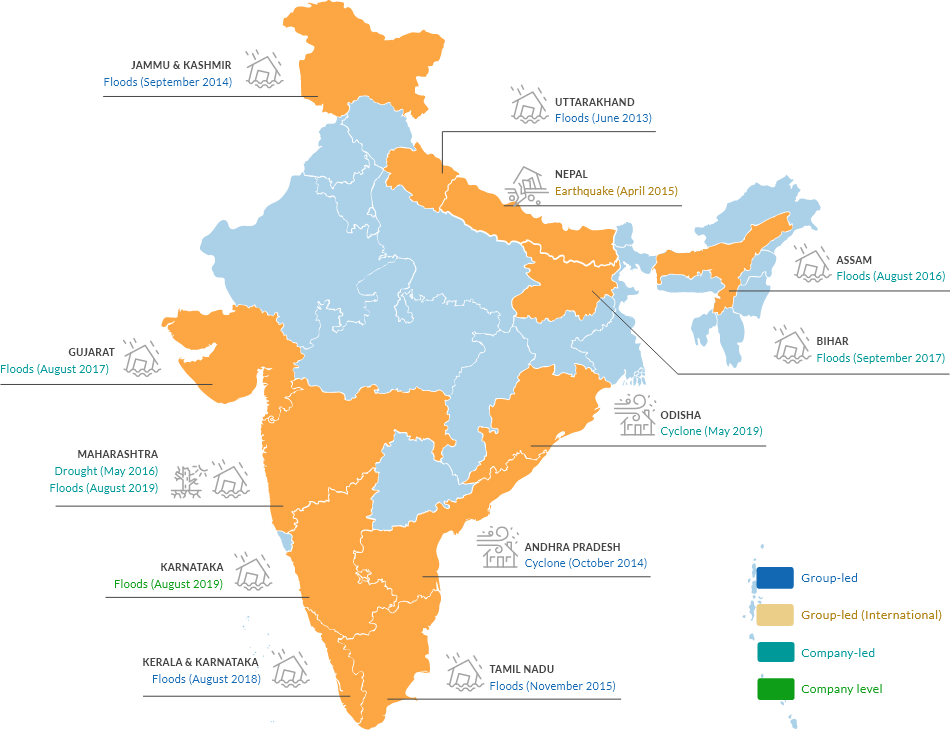Emergencies sparked by climate change, social unrest and disease are affecting communities in ways unheard of earlier. Today, the world must face the looming threat of disasters stemming not only from direct human action but also from the relationship between society and the environment.
Responding to communities in need, post disasters, has been an integral part of the Tata tradition and continues to strengthen the group's legacy of leadership with trust, today, tomorrow and beyond. The Tata group possesses a vast workforce, across geographies, with staggering breadth of expertise and functional competence. The varying competencies and capabilities of our people are of great significance when disaster strikes. Tracing efforts right from the rescue and rehabilitation of refugees, in 1947, to addressing pressing needs during the COVID-19 pandemic, the Tata group has firmly upheld the belief and values of its Founder, Jamsetji Tata - "In a free enterprise, the community is not just another stakeholder in business, but is in fact the very purpose of its existence".
In 2014, we took steps to institutionalise our response to disasters and set up a dedicated Disaster Management team as a part of the Tata Sustainability Group (TSG) at Tata Sons. The coordination of skills and expertise across companies to respond effectively to disasters, is a key aim of the Disaster Response team of the Tata group. TSG has since put in place a robust 'Disaster Response Framework' to coordinate One-Tata responses to disasters.
Disaster Response Framework
Tata Disaster
Response
Guidelines
Technical
Support
Companies
Project Managers
Procurement Officers
& Core Volunteers
Tata Disaster
Response
Guidelines
Technical
Support
Companies
Disaster Response Framework
Project Managers
Procurement Officers
& Core Volunteers
Click on each to know more
Tata Sustainability Group
News
Inside The Tata
Response to Covid-19
The 'One Tata' Response Programmes
The Tata group undertakes a whole range of activities while responding in the aftermath of a disaster; from emergency services, to relief operations to long-term rehabilitation projects. During the relief phase, detailed need assessment exercises by response teams are conducted to ensure that high quality goods are distributed to people in need. Family Relief Kits consist of non-food items such as kitchen utensils, stoves, hygiene items, mosquito nets, etc. Based on the affected community's needs, relief operations also include building temporary shelters, creating common safe spaces for children and adolescents, health and counselling camps, providing safe drinking water and more.
Over the past six years, India and Nepal have witnessed devastating humanitarian disasters. The One Tata team has reached out to over 13.77 lakh people in these areas, through relief measures and extensive rehabilitation programmes. Monetary support for the activities has poured in for all the disasters that have been responded to, from over a 100 Tata companies across geographies, some of which also include employee contributions. Almost all the Tata group led response programmes are in the rehabilitation phase where work focuses on Building Back Better – be it livelihoods, infrastructure or more, the Tata group makes efforts to help build it back better than what it was even before the disaster hit the area.
Our Responses
|
Total Lives Impacted
.7+ Lakh
|
|
Total Funds
INR Crore | 20 responses
|
Click on each response to know more


